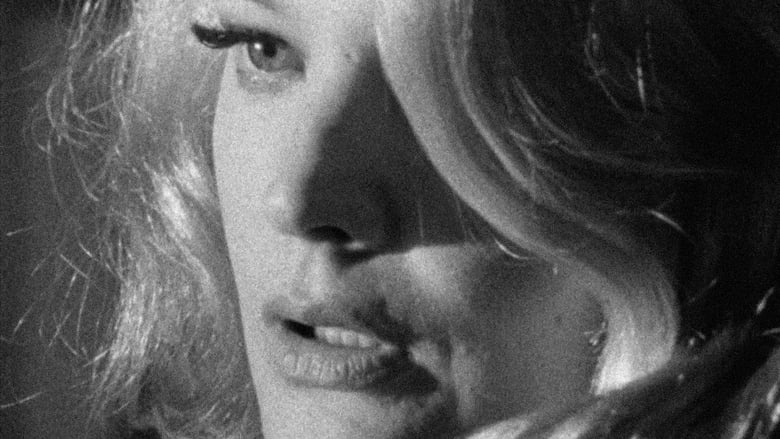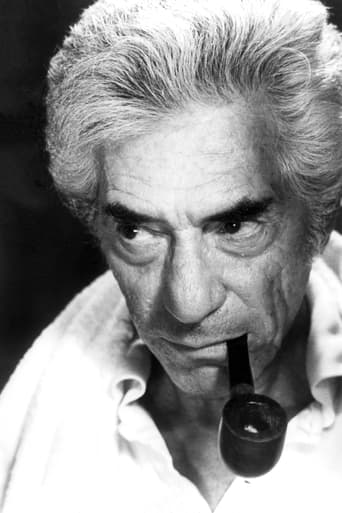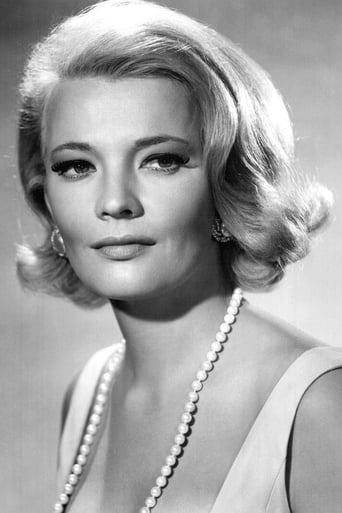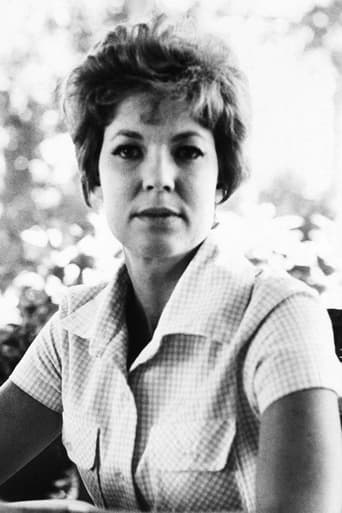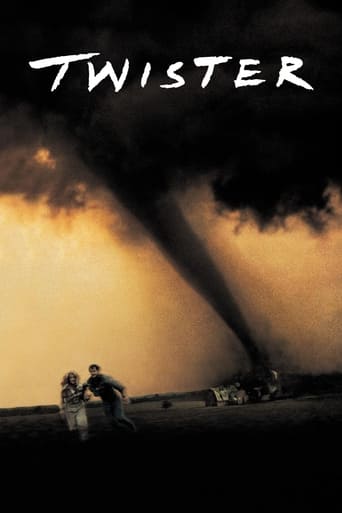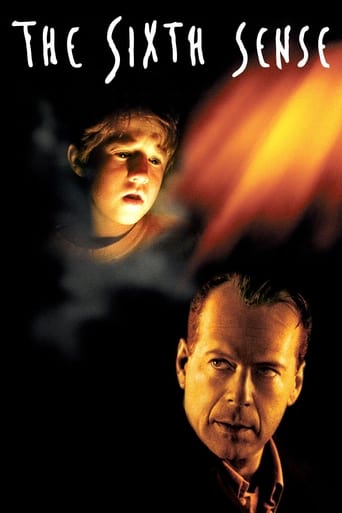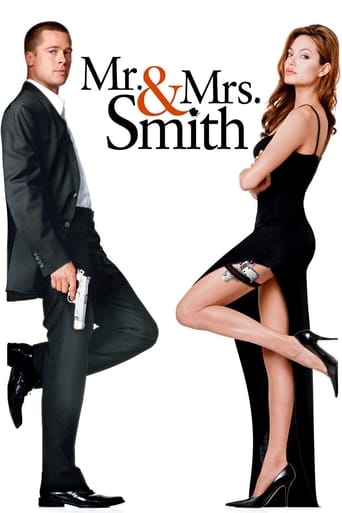Faces (1968)
Middle-aged suburban husband Richard abruptly tells his wife, Maria, that he wants a divorce. As Richard takes up with a younger woman, Maria enjoys a night on the town with her friends and meets a younger man. As the couple and those around them confront a seemingly futile search for what they've lost -- love, excitement, passion -- this classic American independent film explores themes of aging and alienation.
Watch Trailer
Cast


Similar titles
Reviews
Simply A Masterpiece
hyped garbage
Good story, Not enough for a whole film
A clunky actioner with a handful of cool moments.
It takes an acquired taste to be comfortably and thoroughly engaged in Cassavetes' intensely disheartening dramaturgy of bourgeois ennui, FACES is irrefutably a feather in his cup, not in the least for its unsparing cinema-vérité bravura, one could only imagine watching it in front of a celluloid with those intrusive, sidling über-closeups underlined by that grainy monochrome, how different would it be from anything else in the year of 1968? Watching in on a TV screen might be a less dizzying experience and it may even lend a helping hand for the audience to become more appreciated of Cassavetes' scalpel-like dissection of an internecine relationship tangle where no one comes off as unscathed. The film takes the course roughly within one day, we are peering into the disintegration of a 12- year-old marriage between Richard Frost (Marley, who physically resembles an elder version of Cassavetes), a well-off movie financier and his younger wife Maria (Carlin), plus its immediate aftermath. What tickles the idea of divorce into Richard's mind is another woman, Jeannie Rapp (Rowlands), a classy fille de joie who is tentative by the courtship from one of her patron, whom she might also fall for. Whilst Richard visits Jeannie in her apartment with the presence of her other clients, Maria, pent-up after receiving the bolt from the blue, hangs out with her gal pals in a club and they bring back a young go-go dancer Chet (Cassel) to find some cheap solace, but the problem is always the morning after, does she have the courage to face a new day? What else can a domesticated woman do when she is going to a cast-off? The story pans out intimately in its interior-exclusive episodes, burnished by what dynamo of a cast, the film galvanizes our attention from A to Z, it is hard to tell whether the dialogue and play- off is semi-improvised or strictly script-based, but Cassavetes relentlessly presses home a brisk tension of fickleness and turns of moods through the lengthy procedures, two friends banter, jape, dance until one of them finds himself becomes an inconvenient third wheel and he snaps; the same coup-de-theater occurs almost repetitively in each episode, whether it is between Richard and Maria's abruptly disconnected duologue, or the tangible disquiet/agitation between Jeanine and her client Jim McCarthy (Avery, a wonderful chameleon), or later the macho confrontation/reconciliation between Jim and Richard. But it is the chapter where Maria and co. facing off a woman-pleasing Chef leaves the most indelible mark, for its utterly frank expose of a lonely woman's delusion and desperation under the influence of alcohol, the unsung hero here is Dorothy Gulliver's importunate Florence, you cannot help but feeling pity for her, but the pity is concomitant with a whiff of involuntary disgust. The cast is pure gold, John Marley upstages the rest with his silver fox allure so damning pungent in every line delivery and gesticulation, deceptively papers over Richard's dark streak with a winning/poignant combo of open-facedness and bluntness, only belies his shallowness and misery in the morning after as an exasperating cuckold. Ms. Cassavetes, the unparalleled Gena Rowlands drums nuances into every pore of her body and every glance she casts (also thanks to the majestically in-your-face shots to create that stunning effect). However it is two newbies who are given some legitimate Oscar love, Lynn Carlin is stripped down to her raw emotion in her film debut, which powerfully elicits Maria's clogged mental state and counterpoises its life-threatening after-effect; on the other hand, a blond and youthful Seymour Cassel beautifully oozes sex appeal and wide-eyed sophistication as an unexpectedly selfless symbol of savior to all those wrenched and dissatisfied housewives, his Chet is the diagonal counterpart of Rowland's Jeanine, only in exeunt omnes, he has to rashly flee from a window whereas she might eventually get what she wants, if one wanna write about sex politics, FACES is a gold mine. Most suitably, FACES should be ensconced as a smoldering pendant of Mike Nichols' WHO'S AFRAID OF VIRGINIA WOOLF?, both are hell-bent in tearing down smoke and mirrors to debunk lethargy, inaction and mythomania (among many other maladies) abound in all relationships, dare you to watch them cheek by jowl!
A slice of life from Cassavetes that captures the breaking point of a couple's marriage.I feel like watching a Cassavetes movie about once every ten years. That's about how long it takes me to recover from the last one. His films are exhausting, and I find myself admiring them more than I ever love them. I certainly felt that way during "Faces." There's no denying the skill of the actors or Cassavetes' merciless brand of filmmaking (I can't even begin to imagine what audiences at the time made of this film, which came out in a year when "Oliver!" won the Best Picture Academy Award), but I grew pretty tired of it before it was over.John Marley plays the male half of the married couple and probably gives the film's most memorable performance. Gena Rowlands, Cassavetes' long-time wife, plays one of his mistresses and isn't given a chance to display the acting chops she would use several years later to such devastating effect in "A Woman Under the Influence." Lynn Carlin (Oscar nominee for Best Supporting Actress) plays the cheated-on wife who does some cheating of her own with Seymour Cassell (Oscar nominee for Best Supporting Actor). And Cassavetes himself filled out the film's triumvirate of Oscar nominations with a nod for Best Original Story and Screenplay.While I can't say I necessarily enjoyed "Faces," I will say it did a marvelous job of capturing that sense of middle-age malaise that hits men and women when they start to think of their lives as half over rather than half begun and a desperate need to feel needed begins to take hold.Grade: B+
In John Cassavettes' "Faces," Richard Forst (John Marley), a successful L.A. businessman, asks his wife, Maria (Lynn Carlin), for a divorce. Forst leaves his house and goes to see his mistress, Jeannie Rapp (Gena Rowlands), a prostitute who is still entertaining a couple of business clients (Val Avery; Gene Darfler) when he gets there.Meanwhile, Maria goes out with some friends to a nightclub (appropriately called "The Losers") that is filled with loud rock music. They meet Chet (Seymour Cassel), a young macho stud from Detroit, and bring him back home to Maria's house. After her friends go home sobbing over their lost youth, Maria goes to bed with Chet. The next morning, Maria attempts suicide by swallowing a bottle of sleeping pills.Watching "Faces" is like being locked in a room for two hours with a bunch of loud, obnoxious, drunken people that you don't really like. The characters alternate between telling stupid, childish jokes and laughing hysterically, then dancing around the room while singing annoying song lyrics over and over again (i.e. "I dream of Jeannie with the light brown hair"), innately chanting nursery rhymes for no reason (i.e. "Peter Piper picked a peck of pickled peppers"), then arguing with each other, being caustic and cruel to the point of physical violence.Yes, I'm sure there are real people like this, but fortunately, I personally don't know any people who are like these characters. (At least, I *hope* I don't.) Much has been made of the movie's "realistic" style, with its hand-held camera and 16 mm black & white look. This style has influenced everyone from Woody Allen to Robert Altman to today's independent filmmakers. But the fact that the style is good doesn't mean the *movie* is good.I know that some people (particularly film critics) enjoy this type of movie. Some people enjoy flagellation, but that doesn't mean you want to participate in it. This is one of those movies that you watch once, and then – if you're lucky – you forget about it.One line from the movie did make me laugh out loud: Maria: There's a Bergman film in the neighborhood.Richard: I don't feel like getting depressed tonight.Really! You could've fooled me!
John Cassavetes' second feature of any note after 1959's Shadows, Faces is one of the late director's most daring and experimental films. Telling the story of a disintegrating relationship and the love its members seek in the arms of strangers, the film stars, amongst others, Lynn Carlin, John Marley, Gena Rowlands, and Seymour Cassel. It is shot in black and white and has a freewheeling home video quality - Cassavetes' camera scanning across various "faces", faces blurred, in focus, laughing, and crying.The director's greatest success with the picture rests in his ability to dismantle traditional Hollywood ideas about plot and pacing and still stir up emotion and feeling in the viewer. Cassavetes manages to capture remarkably human and naturalistic performances from his cast (for instance, the way his roving camera captures a shirtless Seymour Cassel chasing flirtatiously after Lynn Carlin through their hotel room, or Lynn Carlin and John Marley rubbing noses together and laughing in a moment of ecstasy), helping the film become more than just a collection of meandering long takes.Essential viewing for anyone looking to explore Cassavetes' work or trace the roots of the current independent film movement. 8/10.


